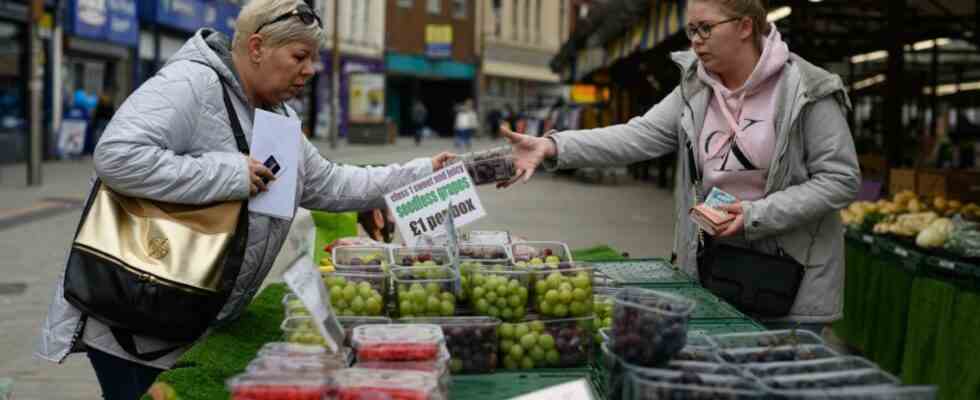Consumer prices in the UK rose at their highest rate since 1982 in May. Goods and services cost an average of 9.1 percent more than a year earlier, the Office for National Statistics said on Wednesday. This is the highest value of the seven leading industrialized countries (G7). Many economists had already feared this after the inflation rate had already amounted to 9.0 percent in April. Rising food prices in particular drove inflation up this time: At 8.7 percent, they rose more than they had in more than 13 years.
Experts see the risk of persistently high inflation coupled with a simultaneous recession, triggered not only by high energy prices but also by ongoing Brexit problems. These could further affect trade relations with the European Union. “With the economic outlook so unclear, nobody knows how high inflation could get and how long it will last – which makes assessing fiscal and monetary policy particularly difficult,” said economist Jack Leslie of the Institute Resolution Foundation. The British pound therefore came under pressure again and lost 0.6 percent against the dollar.
“We are using all the instruments at our disposal to reduce inflation and combat rising prices,” stressed Finance Minister Rishi Sunak on the occasion of the new figures. “We can build a stronger economy through independent monetary policies, responsible fiscal policies that do not increase inflationary pressures, and increasing our long-term productivity and growth.” Last week, the Bank of England raised interest rates for the fifth time in seven months in order to ease the pressure on prices. It is now at 1.25 percent. As a result, the rate of inflation should return to the target of two percent set by the monetary watchdogs in the medium term and on a sustainable basis. However, the central bank is expecting prices to continue to rise for the time being: for October, for example, they are expecting an inflation rate of eleven percent.
According to a survey by the Ipsos institute, the rapidly rising cost of living is hitting the island’s citizens hard: according to this, two out of three Britons are turning off the heating to save costs. More than a quarter of respondents even said they skip meals because of their tight budgets. This situation is increasing popular dissatisfaction with the government of Conservative Prime Minister Boris Johnson. At the same time, calls are getting louder for increasing social assistance in order to relieve poorer sections of the population in view of the rapidly rising cost of living.

